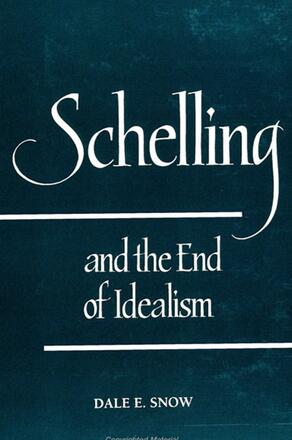
Schelling and the End of Idealism
Alternative formats available from:
This comprehensive, general introduction to Schelling's philosophy shows that it was Schelling who set the agenda for German idealism and defined the term of its characteristic problems.
Description
Schelling is finally beginning to emerge from the long shadow cast by the eminence and influence of Hegel. This book demonstrates that, far from merely forming a step on the royal road to Hegel, it was Schelling who set the agenda for German Idealism and defined the terms of its characteristic problems. Ultimately, it was also Schelling who explored the possibility of idealistic system-building from within and thus brought an end to idealism
Dale E. Snow is Assistant Professor of Philosophy at Loyola College.
Reviews
"It gives a very clear account (in relatively brief compass) of a long series of extremely difficult and obscure texts." — H. S. Harris, York University
"The book is remarkably clear and straightforward. This is particularly impressive in the field of Schelling scholarship, given the notorious obscurity of Schelling's works. Dr. Snow has obviously taken great pains to report only what she thoroughly understands, and that is certainly enough to provide the reader with a comprehensive general introduction to Schelling's philosophy. There is, moreover, a definite need for such an introduction. One must recall that in virtually every country outside of England and the United States, Schelling has long been recognized as Hegel's equal, if not his philosophical superior. The project of introducing his philosophy here is an important one." — Joseph P. Lawrence, Holy Cross College